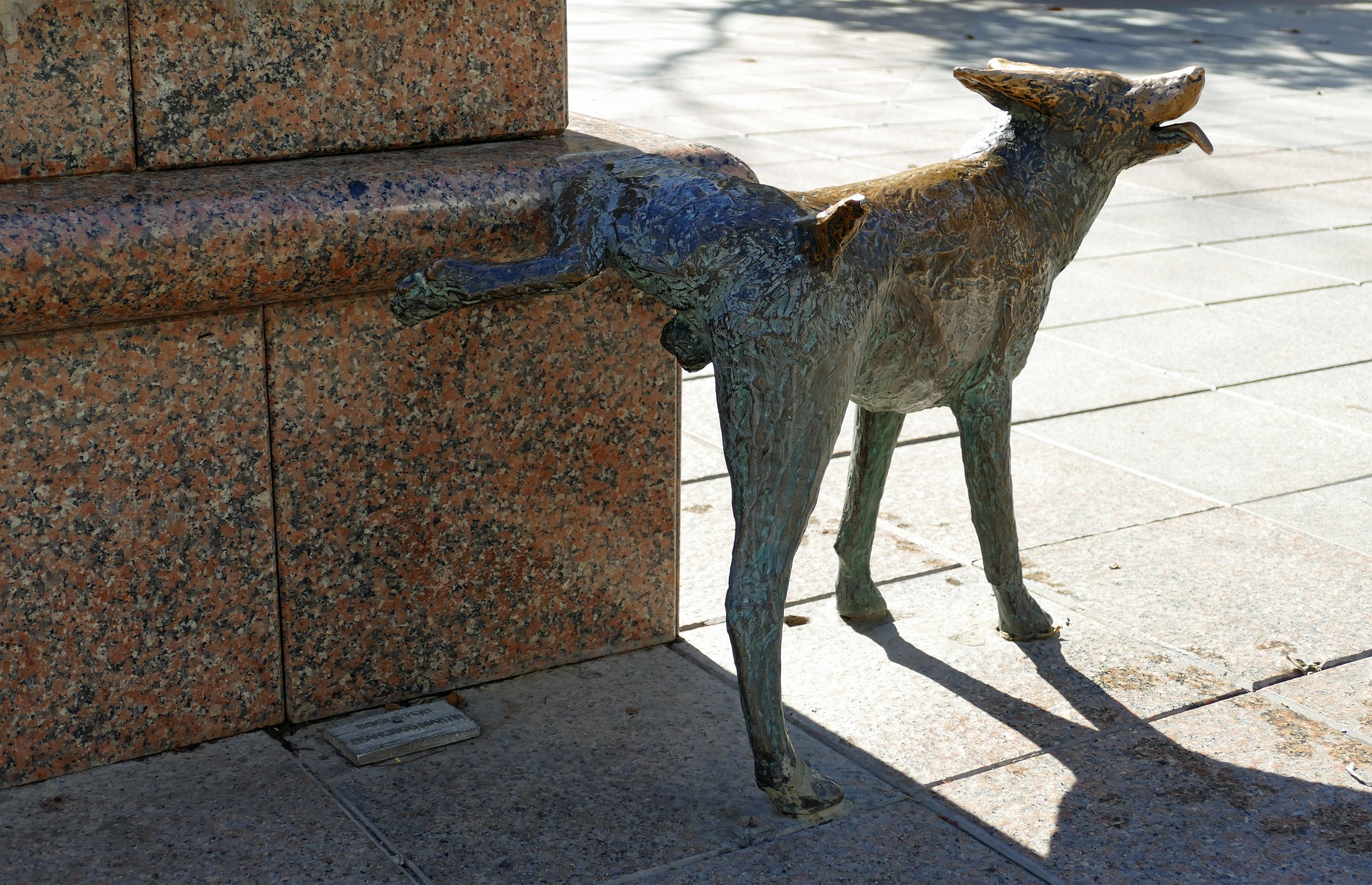My dog pees on my bed
There's nothing more infuriating than a dog peeing on his owner's bed, especially when it happens suddenly after your furry friend is already clean.
While it goes without saying that this situation can be distressing or annoying, it should be of particular concern to you when it happens suddenly. Dogs are naturally housebroken, and this sudden change in behavior must have a cause, potentially causing your dog great physical or mental distress.
Causes of uncleanliness in dogs
A dog that is not housebroken has either been poorly potty trained or has a physical or psychological problem that is causing a behavioral problem.
A training problem
If you've just adopted a puppy or an adult dog - even one that was housebroken before it was adopted - it's a good bet that a potty training tune-up is in order. A puppy may take a while to understand where he needs to go, and he especially needs to learn to hold himself in between toileting trips, which is not something he is born with.
As for the newly adopted adult dog, we must take into account the fact that a sudden lack of cleanliness may come from a disturbance in his habits causing him to feel very unwell. In this case, the potential causes of small accidents on the bed are multiple: the dog must get back to good habits, but the owner must also be attentive to his uneasiness and do his best to offer his companion a reassuring lifestyle and environment.
A urinary tract problem
In the case of a dog that suddenly urinates on your bed for no apparent reason, you should suspect a urinary tract problem. Cystitis can be the cause of intense pain that forces the animal to urinate anywhere to try to alleviate its suffering.
Stones, diabetes, kidney failure, hormonal disorders and tumors in the reproductive or urinary tract are all possible causes of uncleanliness in dogs. It is therefore essential to visit your veterinarian first to rule out a pathological cause, before focusing on the search for potential psychological causes.
An anxiety problem
Dogs are usually very attached to their owners, so they may suffer from separation anxiety when they are separated from their humans, even for a short time. If you have changed your routine (work schedule, birth of a child, separation, etc.), your dog may be alone more often than before and may not be coping well.
The arrival of a new pet in the home can also cause stress in your dog, which should never be confused with jealousy, a feeling that does not exist in dogs and that owners tend to project onto their pets to explain certain behaviors more easily. A change of environment, the smell of a female in heat in the neighborhood, the noise of work in your street... All these disturbances are factors that can make your dog anxious.
He is trying to mark his territory
It is also important to distinguish between a dog that relieves itself and a dog that marks its territory, as these two problems have distinct solutions. Unneutered males tend to water their environment liberally, which is distinguished from a real pee by the amount of urine emitted, which is much smaller in the case of urine marking.
Finally, it is possible that you don't take your dog out often enough and that he simply has a terrible urge to pee in your absence. On average, an adult dog can hold it's urine for 3 to 4 hours, but some dogs urinate more often than others, for no particular reason or because of their lifestyle (for example, if they drink more water or eat wet food).

How to prevent your dog from urinating on your bed?
In the case of the sudden appearance of this behavior in your dog, or in a newly adopted adult dog, the first thing to do is to make an appointment with a veterinarian. Only then can you be sure that your dog is not suffering from an illness that is causing him anxiety or a urinary pathology that prevents him from holding it in.
If your dog is perfectly healthy, question your lifestyle, even if it seemed to be working for him until now: your dog may have been suffering in silence from loneliness for years, for example. Be attentive, spend time with your four-legged friend and give him plenty of physical and mental exercise to relieve his stress.
If you are unable to spend more time with your dog, the best solution is to hire a pet-sitter to ensure that he or she gets enough hygienic outings and attention in your absence.
My dog pees on my bed: what not to do
First of all, never take the easy way out by assuming that your dog has soiled your bed out of revenge, jealousy, malice or any other purely human feeling.
While our dogs have been proven to have emotions, they don't have the complex feelings that humans do, and misunderstanding the reasons for their behavior may prevent you from understanding your dog and solving the problem.
You should also not scold your dog for sudden messes, let alone rub his nose in them, which is still a very common idea, but is unfortunately traumatic for the dog and completely ineffective.
Finally, don't neglect the importance of a silent physical pain or a psychological malaise in a messy dog: in the vast majority of cases, the reason for bedwetting is here!
There are many reasons why your dog may urinate on your bed, and a veterinary visit will usually allow you to quickly pinpoint the problem and solve it effectively.
Even if it's irritating to find your bed soiled after a long day at work, don't give in to your dog's annoyance by scolding him. He won't understand your anger and will be even more anxious.
A dog with potty problems is almost always a dog in mental or physical pain, and if that's not the case, all you have to do is be patient and get an educational tune-up.

